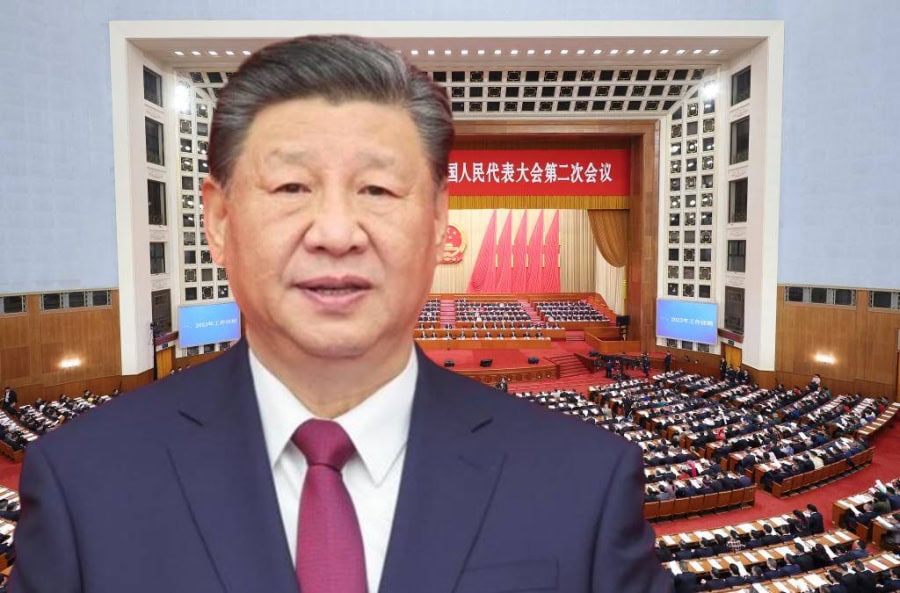BEIJING – Chinese President Xi Jinping called for development of high-quality productive forces in bid to drive forward China’s pursuit of high-quality development.
Sharing his views at the second session of 14th National People’s Congress, Xi emphasized that developing new quality productive forces does not imply neglecting or abandoning traditional industries.
He cautioned against herd behavior or speculative bubbles in developing the new quality productive forces. He also called for selective promotion of new industries, models and new driving forces based on local resources, industrial foundations and research conditions.
Chinese President underscored importance of leveraging new technologies to upgrade traditional industries, promoting the high-end, intelligent and green transformation of industries.
The country must seize opportunities to intensify innovation, nurture and strengthen emerging industries, and foster future industries with forward-looking planning, he said.
Xi first proposed the concept of new quality productive forces during an inspection tour in Heilongjiang province in September. With innovation leading, new quality productive forces means advanced productivity freed from traditional economic growth models. It features high technology, high efficiency and high quality, and aligns with the country’s new development philosophy.
The term refers to new productive forces that emerge from continuous advances in science and technology, driving strategic future and emerging industries that could introduce breakthrough technological advancements in an era of intelligent information.
During Tuesday’s meeting, Xi said that Jiangsu has favorable conditions and capabilities for developing new quality productive forces. He emphasized the need for the province to focus on building a modern industrial system with advanced manufacturing as the backbone.
As one of China’s economic powerhouses, Jiangsu saw its regional gross domestic product increase 5.8 percent year-on-year to 12.82 trillion yuan ($1.78 trillion) in 2023, ranking second among 31 provinces, municipalities and autonomous regions, following Guangdong province.
The manufacturing industry’s added value in Jiangsu reached 4.66 trillion yuan last year, accounting for 36.3 percent of the province’s GDP.
Xi called for a deeper integration of technological and industrial innovation, consolidating the leading position of traditional industries and accelerating the creation of strategically competitive emerging industry clusters in order to make Jiangsu an important stronghold for developing new quality productive forces.
The president also emphasized the need to plan for further comprehensive deepening of major reforms to inject stronger impetus into high-quality development and propel sustained momentum for Chinese modernization.
In order to promote the high-level socialist market economy system, efforts should be made to improve systems in terms of property rights protection, market access, fair competition and social credit, and support the growth of the private economy and private enterprises, Xi said.
It is essential to deepen reforms in the scientific and technological system and the education and talent systems, and remove obstacles to the development of new quality productive forces, he said.
Xi reiterated the necessity to continuously promote a market-based, world-class business environment governed by a sound legal framework, thereby shaping new advantages for a higher level of open economy.
He urged Jiangsu to be fully involved in the regional development strategy of the Yangtze River Economic Belt and the Yangtze River Delta, and to enhance coordination with other regional development strategies and build innovation, industry and supply chains with a larger scope to better leverage the radiating driving force of an economically powerful province for regional and national development.
Efforts should also be made to continue consolidating and enhancing the positive trend of economic recovery and to boost the confidence of the entire society in development, Xi said.










